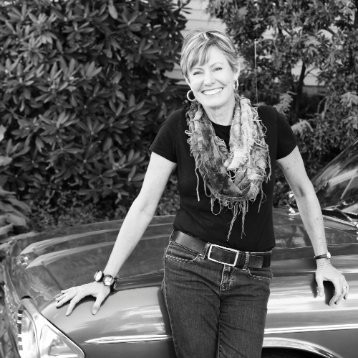MassTLC’s award-winning Board-Ready Bootcamp improves the quality and composition of board governance at tech companies by preparing underrepresented tech leaders, including African American, Latinx, LGBTQ, and women, to serve on tech boards.
Bootcamp participants participate in an intensive, high-impact curriculum that includes both theory and practice of how high performing boards are structured, as well as executive networking with some of the region’s top networked leaders in the tech community.
After initially delaying the program due to Covid-19, the 2020 Board-Ready Bootcamp will now take place virtually in October 2020 and applications are now open.
You can learn more about the program from the Boston Globe or from our brochure, but we think the best way to truly understand what makes this program special is to hear from the alumni themselves.
Over the next several weeks, we will be profiling some previous Board-Ready Bootcamp participants to learn more about their personal experiences and what advice they would give those thinking of applying.

This week: meet Jules Pieri, Co-founder and former CEO of The Grommet, and 2019 Bootcamp participant.
___
Can you tell us more about you and your Board-Ready Bootcamp journey?
I had a great experience on a dynamic non-profit board, and it was a natural extension for me to join a late stage private or small cap public company board. I am targeting companies of $100M in revenue or more. I was getting a lot of invitations to join boards of smaller companies, but I felt I needed both some training and some networking assistance to become more visible to my target companies. That is why I did the MassTLC Board-Ready Bootcamp.
What are your thoughts on board diversity? What advice would you give other companies about why and how they can diversify their boards?
A board’s role encompasses helping the company to have every chance to be both successful and ethical. All the data about diverse boards shows that both of those goals are more likely to be achieved when the board is not homogeneous. It just makes good business and societal sense. We want profitable and responsible companies in our midst to act as the stewards of talent, resources, and the planet. My non-profit board has 24 members, including the President of American Airlines, the head of HR for Walgreens, a US Congresswomen, and many other accomplished people. More interesting is that the board is gender balanced and is more than 50% BIPOC, including the individuals in the roles I highlighted. This real-life diversity has been a living lesson in the benefits of having a variety of perspectives and experiences around the table. I want to be a person who drives this kind of change in corporate boards.
What would you share about how boards operate and recruit new members? How did you determine what type of board and what role you wanted and how did you develop the relevant experience to strengthen your positioning?
I was fortunate to be recruited to a FTSE100 board and come in as runner up for the position. This experience, which was extensive, was quite instructive. In the end the board changed their spec, and I was not a fit. The person they engaged indeed had a totally different background to mine so I believed the recruiter who told me I had acquitted myself really well, besting 100 other candidates. This boosted my confidence about both the size of a company I can credibly help, as well as my preparedness.
I’ve since been recruited for a private sporting goods manufacturer ($350M in sales) and an investment firm that specializes in ESG investments. I delayed on the first one due to some timing issues, and I was a runner up for the second. I have also been vetted for a prominent national retailer that is building a pipeline for future board needs.
What I do find surprising is that there are not more opportunities coming my way. I have put in the effort to network and get my name and board-readiness out there. One person who specializes in helping women get on boards (it is her full-time job) says she is discouraged by the number of companies who are only paying lip service to this quest, i.e., they do the interviews but pick the guy.
What was the most valuable part of the Bootcamp for you? What advice would you give others to maximize their experience?
I especially appreciated the experienced board members describing the various committee roles and clearing up a little bit of the board relevant language.



